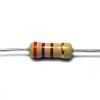The multivitamin from 'Garden of Life' already has 100% of the daily iodine and things like iron. The only concern was the lack of calcium and Magnesium. I went ahead and ordered the Jarrow Ultra Bone Up but instead of taking 6 per day (as per it's serving size) I'll encourage her to take 3. This will still give a fair amount of calcium that she wouldn't ordinarily get.
I also found that chia seeds are an inexpensive form of calcium and it has the other minerals as well as some omega 3. I have also ordered prenatal omega 3 from good reputable brands.
Before our first child she had several early miscarriages. I got her to get blood tests to check for everything and the only concern was a near critical deficiency in vitamin D, despite her getting good sun exposure and basic supplements as found in prenatal. (however Asian skin makes it harder to get through sun). I got her on several 10,000iu supplements per day for a few weeks and boosted it up and next pregnancy was successful. Despite taking 10,000iu per day throughout the pregnancy the level did drop.
I strongly believe in k2 supplementation for almost every one as the western diet simply doesn't have it in there (unless you eat sticks of butter and aged cheeses are not advised in pregnancy). So I'm getting her to have at least 200mcg a day of the mk7 variety
Given she's about to construct an entirely new skeleton, I want to make sure her diet has the materials it needs or it will leech it from her existing one. Not good for her bones or teeth, so that's why I was after a good calcium and cofactor combo. However most good ones had things like vanadium in there and I question if some of these things are helpful in pregnancy. Not living in a 3rd world poor country her diet will still have plenty of meat, vegetables, fruit, grains etc so I don't want to over do any metals which could be harmful to a developing foetus. I'm sure my mum didn't supplement and I think I turned out alright
I think vitamin A in carotenes is alright but if there is advice that suggests that too much in the retin form is harmful to a foetus than its silly to gamble with that. So livers of any kind will be out! And just regular fish oil in moderation over cod liver oil will do just fine.
Just wondering what others people stay away from in pregnancy or take that I haven't thought of.
Edited by shifter, 25 March 2016 - 02:29 AM.



























































